Are you considering preparing a special power of attorney but don't know where to start? This important legal document allows you to designate someone you trust to make decisions on your behalf, whether for financial matters or healthcare choices. Understanding the nuances of creating a special power of attorney can seem daunting, but it doesn't have to be. Join us as we explore the ins and outs of preparing a special power of attorney, and you'll feel empowered to take the next steps!

Principal's full legal name and address
The preparation of a special power of attorney document requires the complete legal name and address of the Principal, the individual granting authority. This information is essential for legal identification. The Principal's full legal name should include any middle names or suffixes (such as Jr. or Sr.) to avoid ambiguity. The address must be the official residence, including street number, street name, city, state, and ZIP code, ensuring that there are no discrepancies in the Principal's identity. Accurate details aid in the validation of the document and help prevent any potential legal disputes regarding authority.
Agent's full legal name and contact information
An effective special power of attorney document requires the precise identification of the agent's full legal name and their contact information, which serves to ensure clarity and authenticity. The agent, often entrusted with specific legal responsibilities, must be clearly defined to prevent any ambiguity. Providing the agent's full legal name, including any middle names or suffixes (like Jr., Sr., III), establishes their identity. Additionally, including their complete contact information, such as residential address, phone number, and email address, enables easy communication regarding the designated powers. This meticulous attention to detail ensures that all parties involved can accurately identify the agent when issues of authorization or decision-making arise, potentially encompassing financial transactions, real estate dealings, or medical choices.
Specific powers granted to the agent
A special power of attorney grants specific powers to an appointed agent, allowing them to act on behalf of the principal in designated matters. Common powers include managing real estate transactions, handling financial investments, or making healthcare decisions. These powers must be clearly defined in the document to ensure clarity and legality, minimizing the risk of misuse. For example, the agent may be authorized to sell a property located at 123 Elm Street, Springfield, or access bank accounts at First National Bank for account number 456789, while explicitly excluding other powers not mentioned. It is crucial to include the date of execution and signatures of the principal and witnesses to validate the document's authenticity.
Duration and validity period of the power of attorney
The special power of attorney document specifies a designated period and specific conditions for its validity. Typically, the duration might be specified as a fixed term, such as one year, although it can be extended based on mutual agreement or particular circumstances. For legal effectiveness, the document often must be notarized, ensuring its enforcement in jurisdictions like the state of California. Expiration dates are also crucial; they may coincide with the completion of designated tasks or events, such as the sale of property. Additionally, considerations for revocation procedures must be included, allowing the principal to terminate the agreement if necessary. Understanding these terms is vital for both parties to ensure that the authority granted aligns with the intended legal processes.
Signatures of the principal and a notary public
A special power of attorney document grants specific authority to an agent, enabling them to act on behalf of the principal in particular matters, such as real estate transactions, healthcare decisions, or financial management. The signatures of the principal, the individual granting the authority, are crucial, as they validate the intent to delegate these powers. A notary public, an official authorized to witness the signing of documents and verify identities, must also sign to authenticate the document, providing legal assurance that the principal's consent was given freely and with understanding. This dual signature requirement enhances the document's enforceability and is often mandated by state laws to prevent fraud. The document must be executed in compliance with local regulations, including witness requirements where applicable.
Letter Template For Special Power Of Attorney Preparation Samples
Letter template of Special Power of Attorney for Real Estate Negotiations
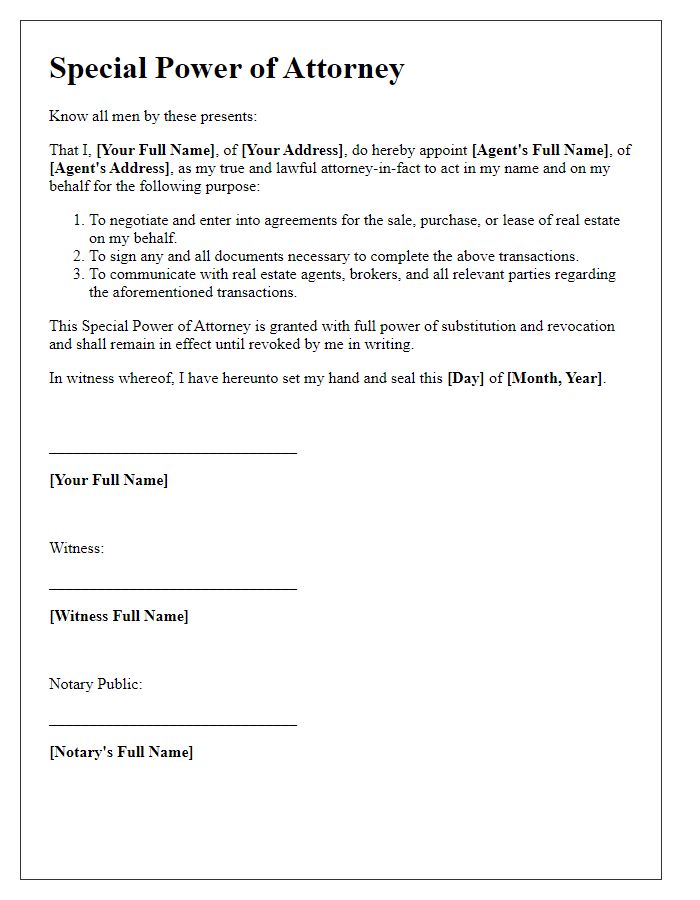

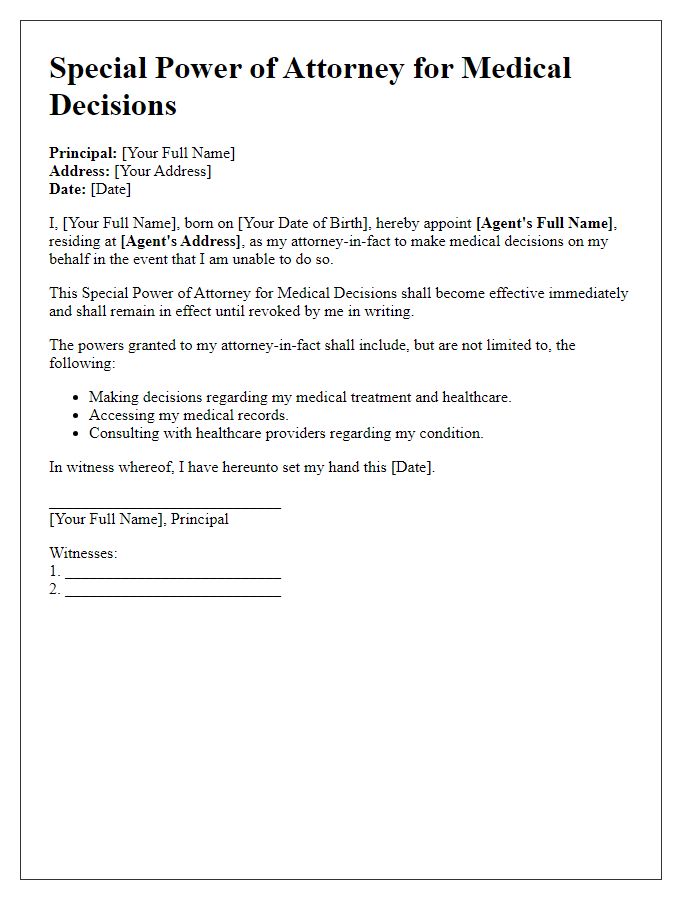
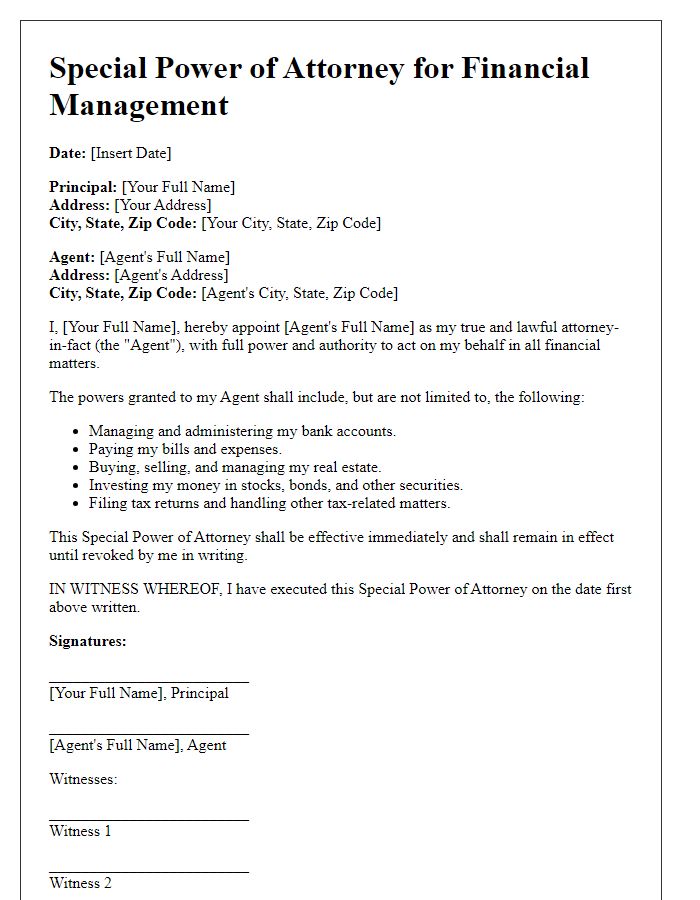
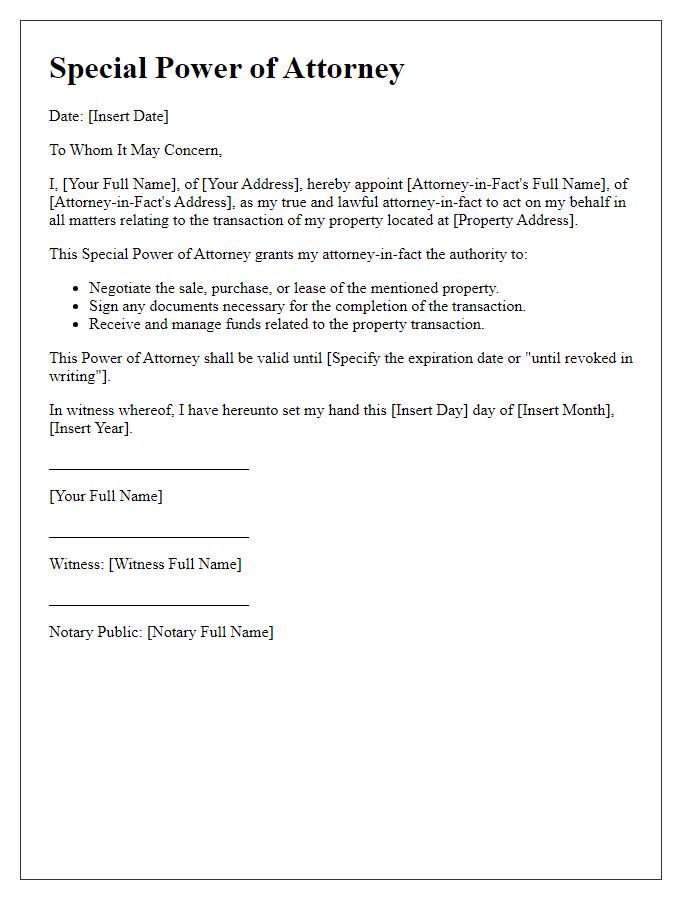
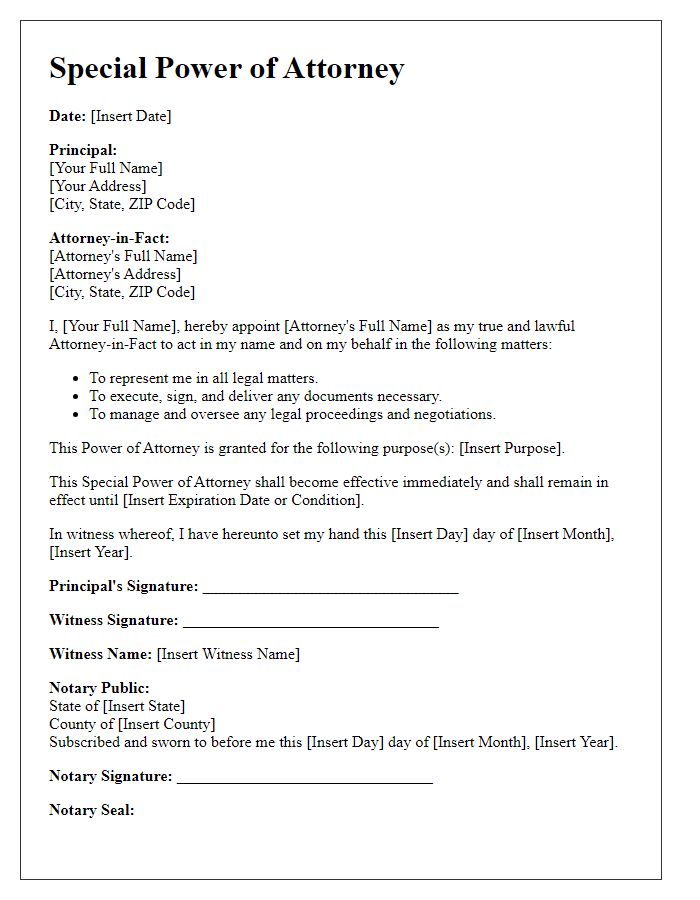
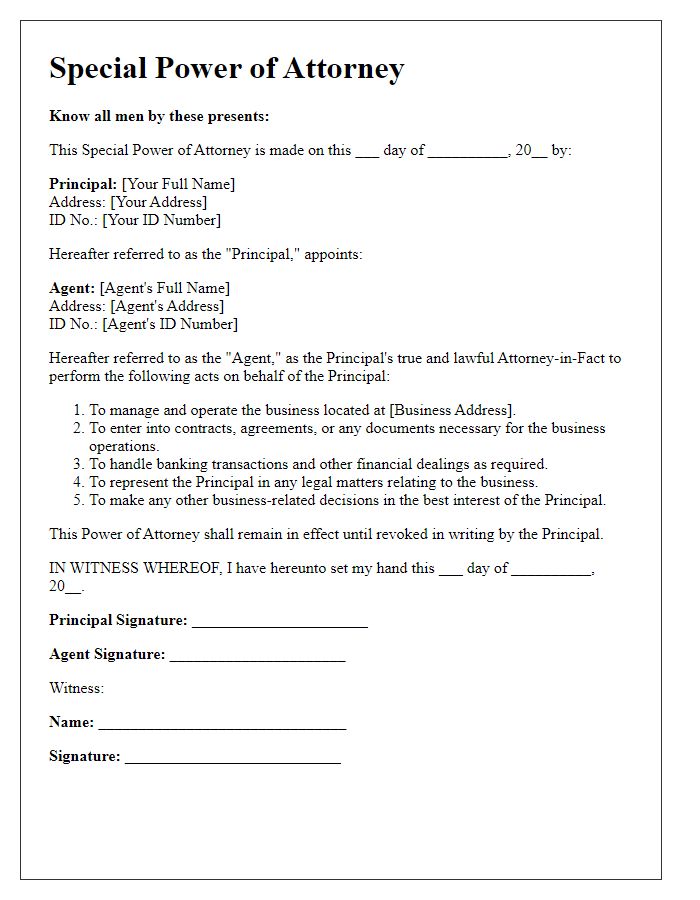
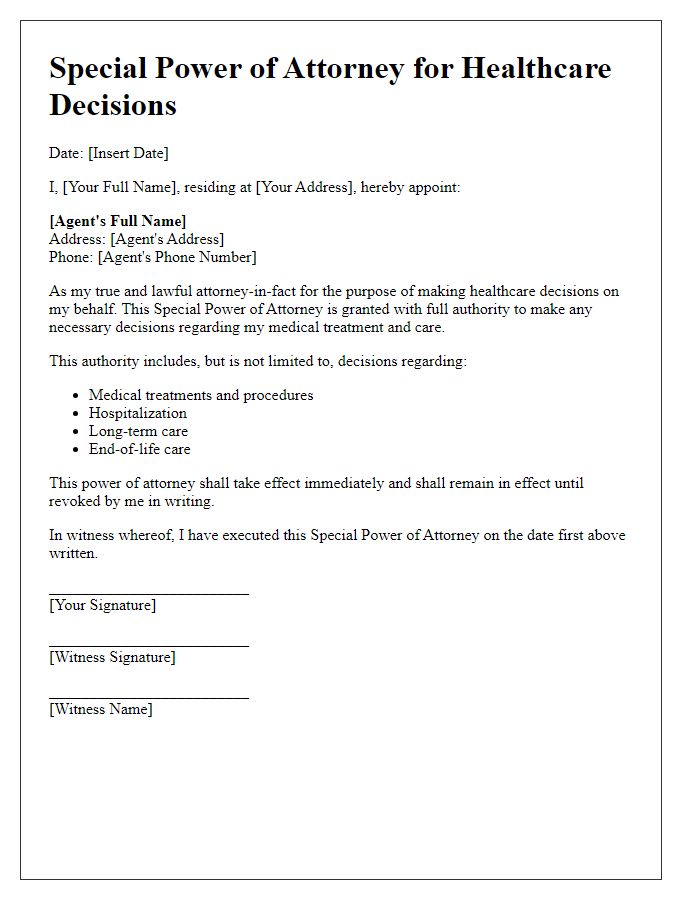
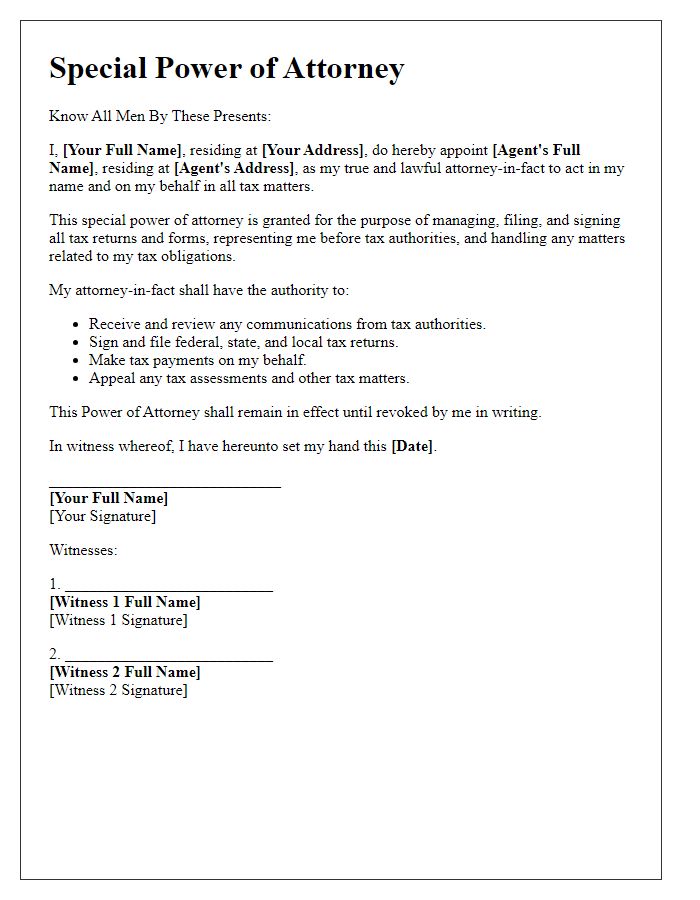
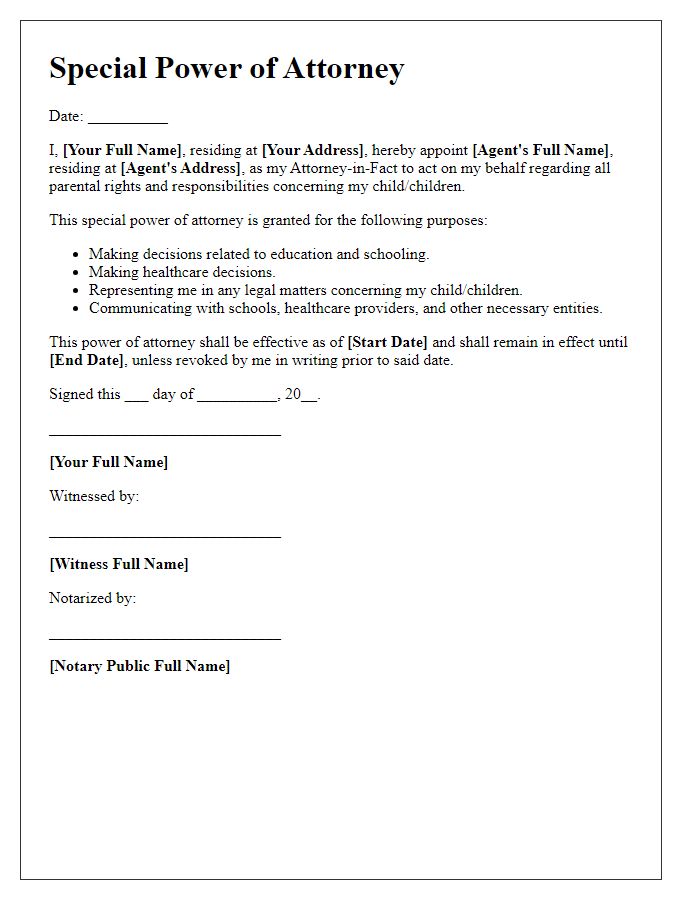
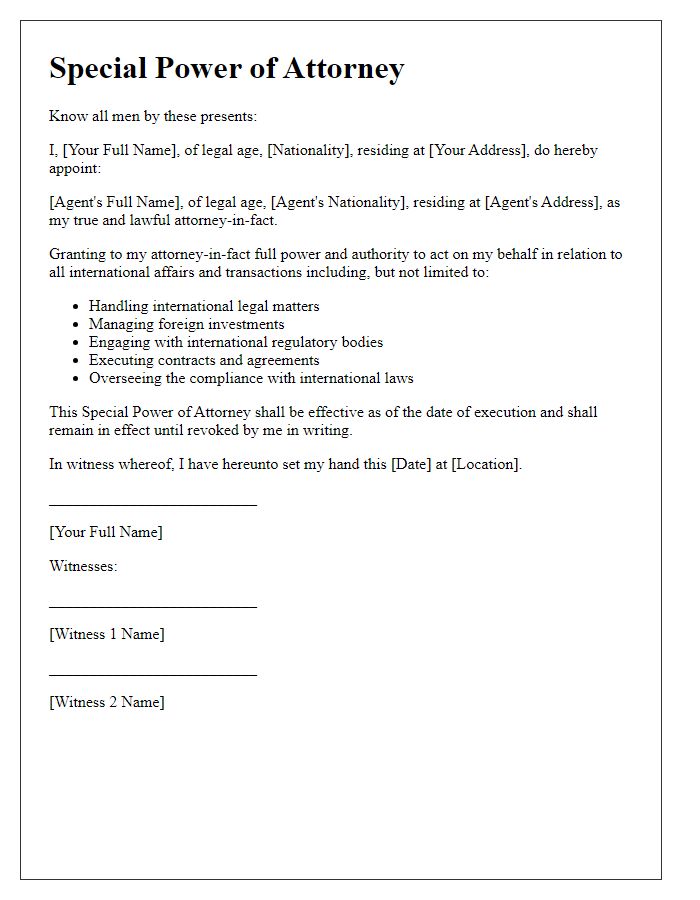


Comments